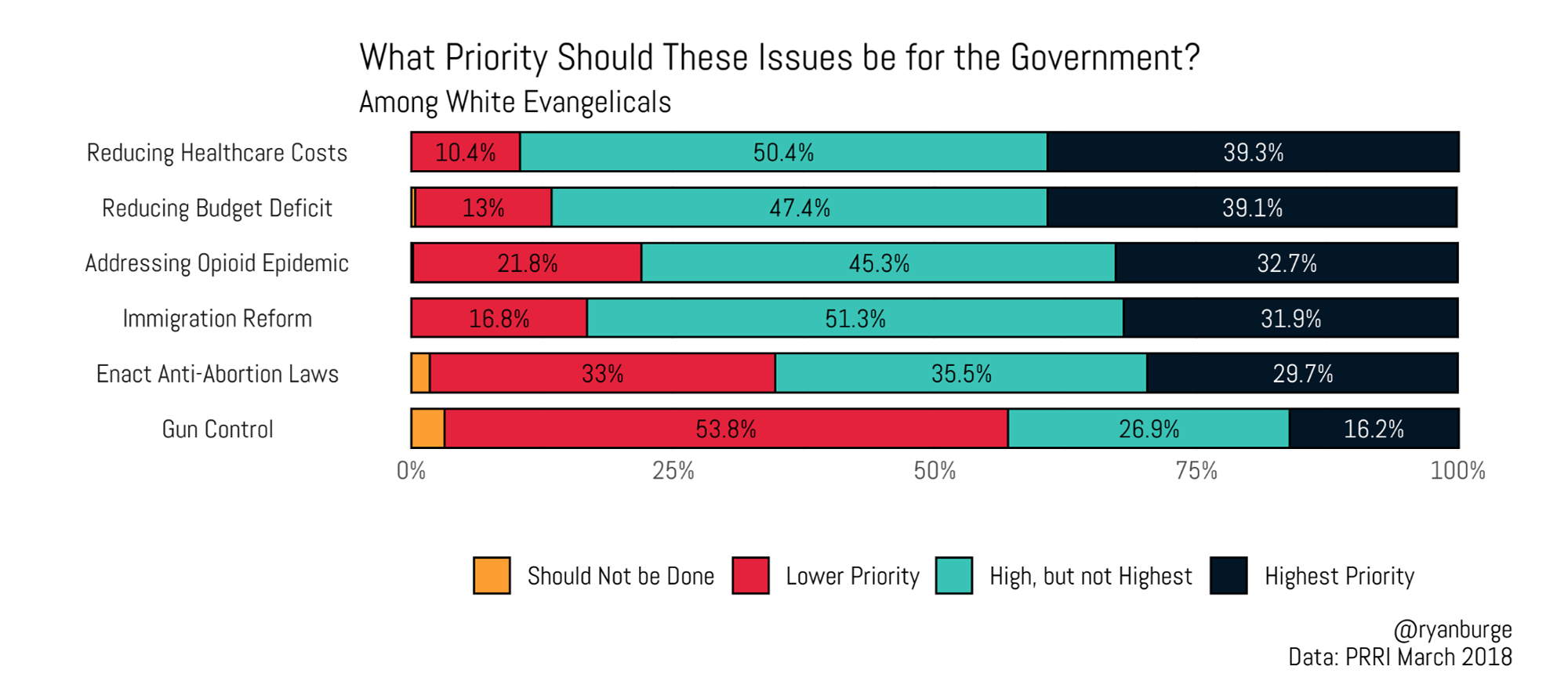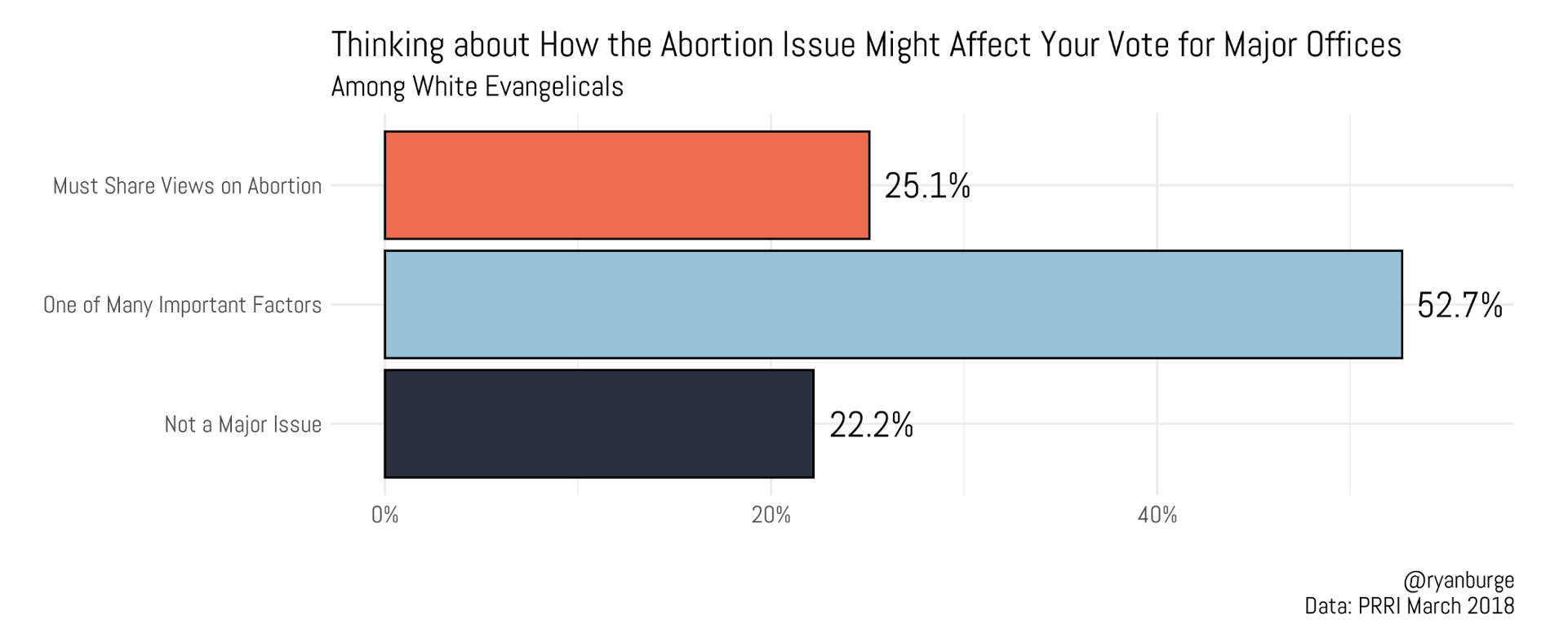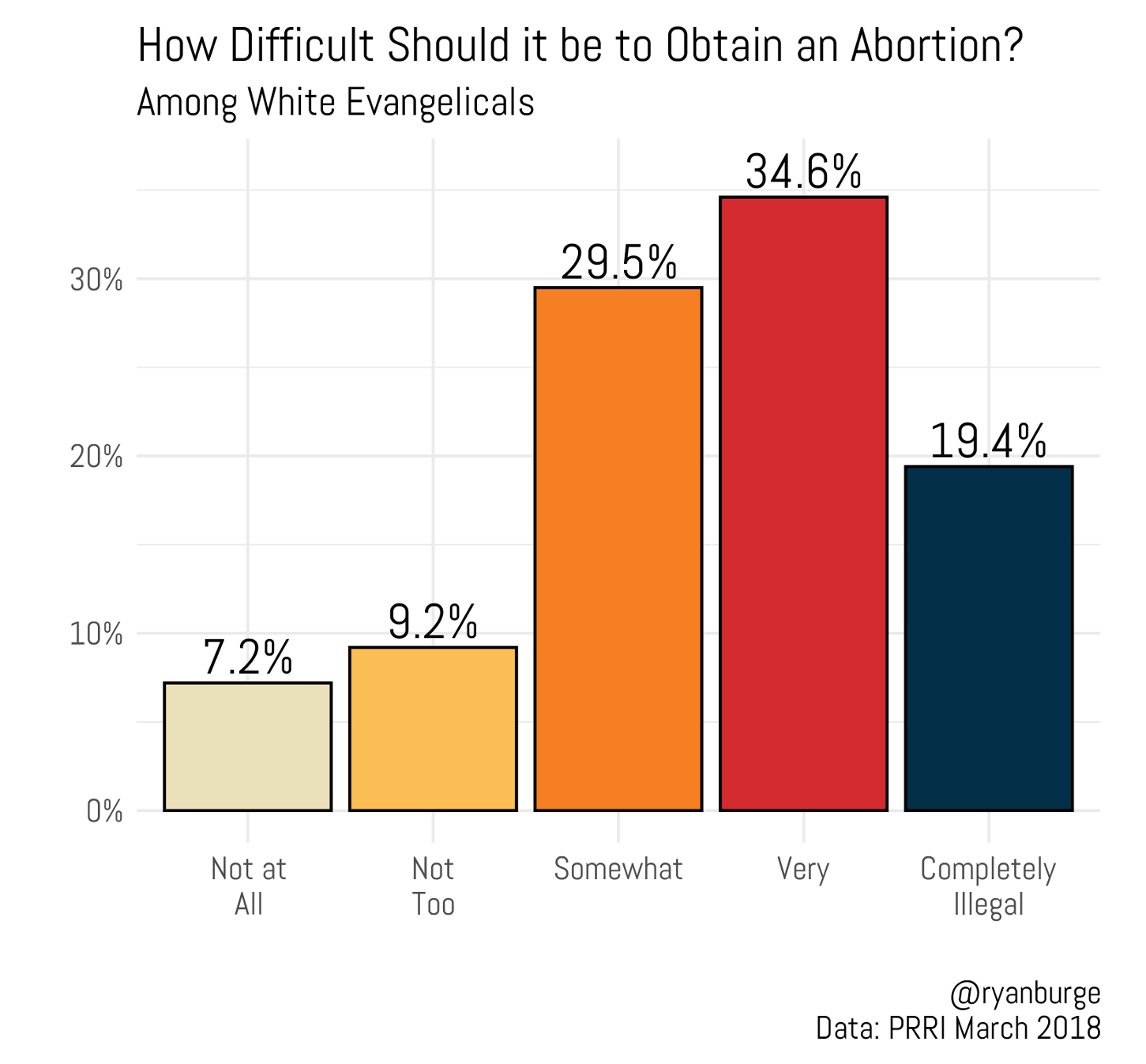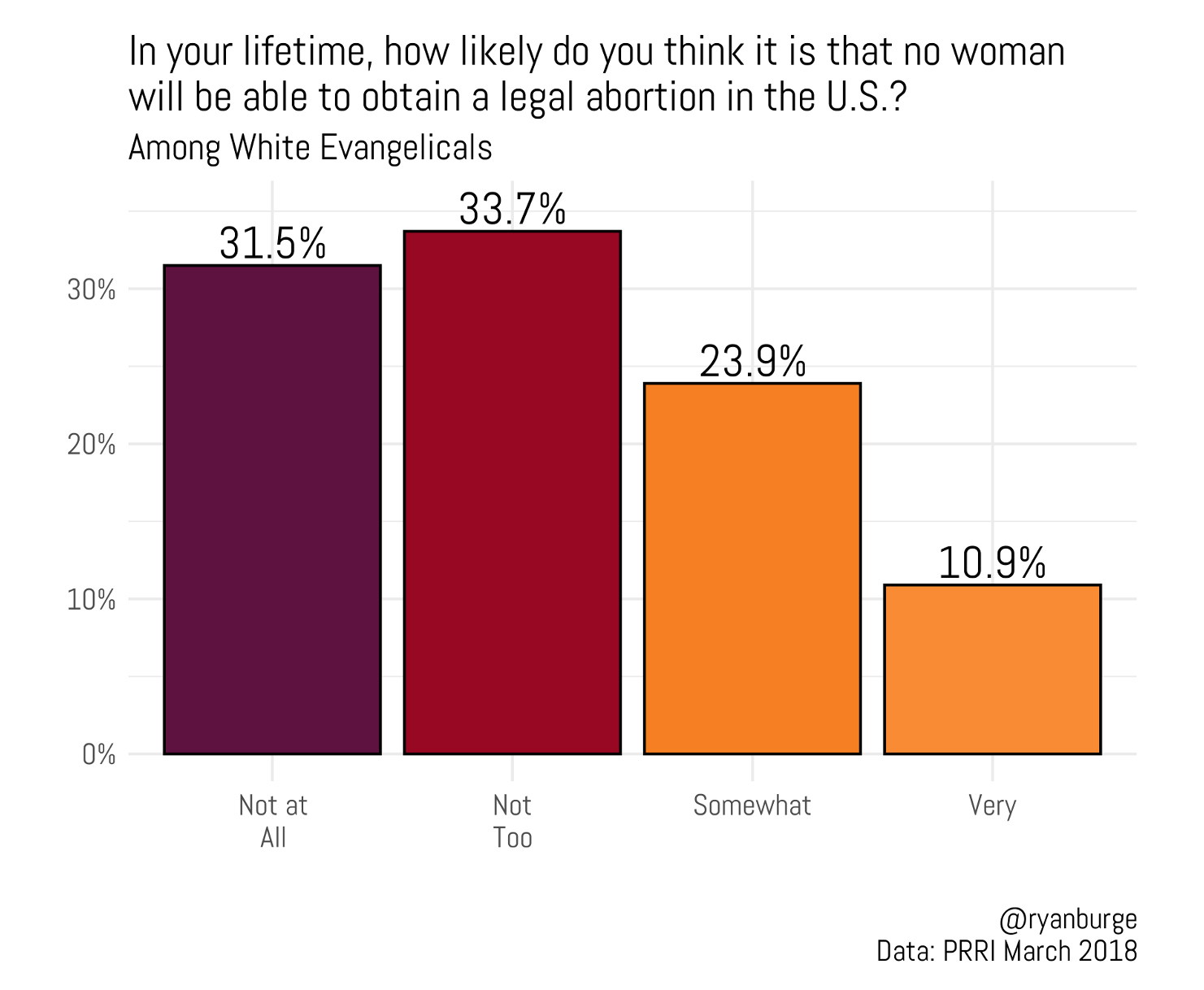
(RNS) — In May, the state of Texas passed a ban on abortions after six weeks of gestation, in practice making almost all abortion procedures illegal in the country’s second-largest state.
Additionally, that same piece of legislation empowers private citizens to sue any individual who has aided in someone getting an abortion in the state. It has already been challenged in federal court by abortion rights groups, arguing this law is in direct violation of the Roe v. Wade Supreme Court decision.
RELATED: Clergy among advocates suing Texas over new law deputizing citizens to enforce abortion ban
But, despite Texas and a flurry of other states passing a variety of restrictions on abortion inside their borders, a more important question needs to be asked: Does the base of the Republican Party actually support these types of measures? Given that white evangelicals make up about a third of all Republicans who vote today, do they want politicians to focus their attention on abortion restrictions?
When one takes a look at polling around abortion, it’s clear advocating for the unborn is not the motivating issue it appears to be. In fact, according to data from the Public Religion Research Institute, there’s ample reason to believe large numbers of white evangelicals don’t place a great deal of importance on abortion and don’t think it’s likely it will ever be outlawed in the United States.

“What priority should these issues be for the government?” Graphic by Ryan Burge
The PRRI poll, conducted in March of 2018, asked about abortion from several angles. The Association of Religion Data Archives also provides a measurement wizard to other abortion questions here. One battery of questions asked respondents how they would prioritize a number of important problems in the United States. Among white evangelicals, nearly 40% said reducing health care costs should be a top priority, while nearly the same percentage emphasized reducing the deficit. About a third wanted the government to address the opioid epidemic, and 32% wanted immigration reform to be a top priority. However, just 30% said enacting anti-abortion laws should take precedent, and an even larger share of white evangelicals (33%) said abortion should be a lower priority in 2018.

“Thinking about how the abortion issue might affect your vote for major offices” Graphic by Ryan Burge
PRRI also asked about abortion and support for candidates more directly. Specifically, they asked a question that probed whether the issue of abortion was a dealbreaker for supporting a candidate. Among white evangelicals, just a quarter of them indicated they would only vote for candidates who shared their views on abortion, while just over half said abortion was one of many factors that weighed on their decision-making process. Nearly as many white evangelicals said abortion was not a major consideration on election day as those who said it was a dealbreaker.

“How difficult should it be to obtain an abortion?” Graphic by Ryan Burge
But, how could this be? The narrative surrounding white evangelicals is that they are rabidly anti-abortion, and many politicians have gained their support by staking out a very conservative position on abortion.
The truth is, though, the data indicates that white evangelicals, by and large, do not have a hard-line approach to abortion. In fact, just 20% of them thought abortion should be completely illegal, and another 35% said it should be very difficult to obtain an abortion, while 45% of all white evangelicals say it should be somewhat, not too, or not at all difficult to obtain an abortion. In short, nearly half of white evangelicals don’t think the United States should make it incredibly burdensome to obtain an abortion.

“In your lifetime, how likely do you think it is that no woman will be able to obtain a legal abortion in the U.S.?” Graphic by Ryan Burge
When asked to postulate about the future of abortion in the United States, white evangelicals seem to believe it’s very unlikely abortion will ever be made completely illegal in the United States. Just 11% of white evangelicals said it was very likely to happen in their lifetimes. By contrast, nearly three times as many (32%) said it was not at all likely that abortion would be made illegal in their lifetime. Thus, it’s fair to assume that many white evangelicals have come to believe abortion is a dead-end issue and that there will not be major shifts in policy surrounding abortion in the near future.
It’s important to caveat this finding by noting this poll was conducted in March of 2018, before both Brett Brett Kavanaugh and Amy Coney Barrett were confirmed to the Supreme Court. However, it doesn’t seem likely that opinion shifted rapidly on this question in the last few years.
Abortion used to hold a special place in American political discourse. It became a way for many evangelicals to end the debate when being pressed on why they wouldn’t vote for Democrats. I think many of us have heard someone say, “I can’t vote for a party that allows babies to be murdered.” It became so ubiquitous O. Alan Noble even gave it a name: the abortion juke.
But, it seems like abortion is slowly being replaced by immigration among leading figures in the GOP — and for good reason. The votes of white evangelicals do not turn solely on a woman’s right to choose, and other issues like immigration and issues of race may be even more effective at turning out the base in the future.
(Ryan Burge is an assistant professor of political science at Eastern Illinois University, a pastor in the American Baptist Church and author of “The Nones: Where They Came From, Who They Are, And Where They Are Going.” He can be reached on Twitter at @ryanburge. The views expressed in this commentary do not necessarily reflect those of Religion News Service.)
